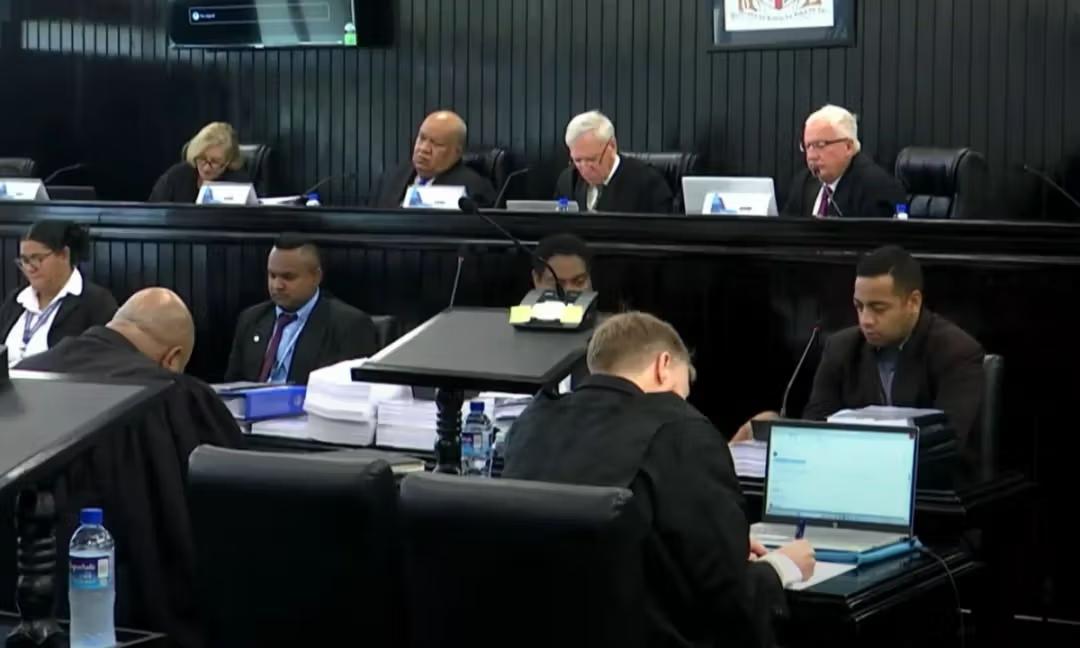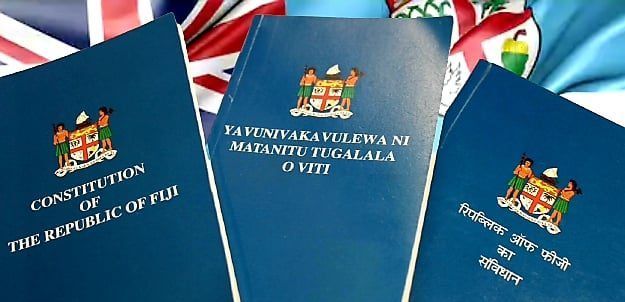

From left: Chief Justice Salesi Temo, Prime Minister Sitiveni Rabuka, and Labour leader Mahendra Chaudhry.
Photo/Fiji Parliament/Fiji PM's Office/Fiji Labour Party
Supreme Court eases path for constitutional reforms, sparks debate on minority rights in Fiji
The ruling follows concerns over the rigidity of the previous requirements and may lead to a more democratic process, as the government seeks to engage citizens in shaping the nation’s future.


Losing her vision at 29, woman found a crisis Pacific communities can’t afford to ignore

Kings bring OFC Pro League home as storms hit round three fixtures

Fears that new police powers will push Pacific youth further into harm

Pacific calls for action on climate change and illegal fishing at major ocean naval forum

Losing her vision at 29, woman found a crisis Pacific communities can’t afford to ignore

Kings bring OFC Pro League home as storms hit round three fixtures

Fears that new police powers will push Pacific youth further into harm
Fiji's government says there is now a clear and democratic way to change the country's constitution.
This follows a recent ruling by the Supreme Court, which states that the requirements for making constitutional changes have been eased.
Now, only a two-thirds majority in Parliament and a simple majority from voters in a referendum are necessary for amendments to be approved.
The Fijian government had asked the country's highest court for guidance on certain parts of the constitution that explain how to make changes.
Chief Justice Salesi Temo confirmed that the 2013 Constitution is still valid, although it was criticised for being imposed on the people without their choice.
“It was imposed on the people, not chosen by them. That is, therefore, a democratic deficit,” Temo ruled. But he added that it has served as the foundation for legal and political matters in Fiji for many years.

Photo/Fiji government
Three elections and more than 400 laws have been enacted under the 2013 Constitution, making it the basis of legal and political life.
The Supreme Court says it is no longer necessary for 75 per cent of registered voters to approve changes. Instead, a two-thirds majority in Parliament and a simple majority during a national vote are enough.
The decision addresses long-standing concerns that the previous requirements made it almost impossible to amend the constitution.

Photo/Fiji government
Prime Minister Sitiveni Rabuka has welcomed the landmark ruling, saying it opens the door for new constitutional reforms and simplifies an “unworkable” amendment process.
In a statement, Rabuka says the Coalition Government is committed to following the law and making decisions democratically and inclusively.
The Prime Minister also says that the voices of the people are important in shaping Fiji’s future, and that together, they can move forward with certainty and confidence.
The Supreme Court also declared that Fiji’s previous 1997 Constitution is no longer valid.
There have been increasing calls for reform since the 2013 Constitution was introduced by former Prime Minister Frank Bainimarama after a coup in 2006.
But Labour Party leader and former Prime Minister Mahendra Chaudhry is concerned that the changes could have negative effects on minority communities, especially the Indo-Fijian population.
Watch National Federation Party counsel Jon Apted's presentation to the Supreme Court.
Chaudhry warns that the new process might threaten minority rights, given the country's history with race-related issues.
“The Indian community, for instance, feels particularly vulnerable in light of the country’s history of race-based coups and the trampling of their rights,” he told local media.
He criticised the Coalition Government for not clearly explaining the specific changes it intends to make to the constitution.
He says the lack of transparency is “deeply concerning” and is causing anxiety among citizens.
“The Coalition Government’s unwillingness to spell out the constitutional changes it is contemplating has made people more apprehensive,” Chaudhry says.
The Cabinet will now discuss the court’s opinion before Rabuka announces the next steps for Fiji’s constitutional future.